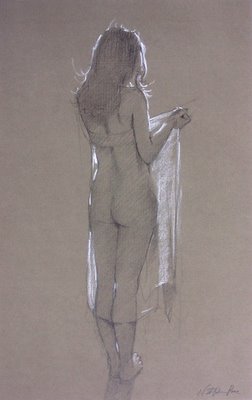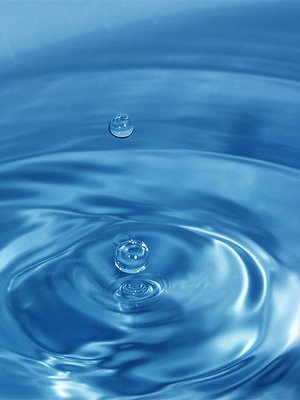Arionhod

What is that poets are continually trying to name, over and and again, with their waves of curved words? Bringing forth, excavating, navigating an imprecise interior which we feel but can't quite know, not sufficiently, though each song seems to come closer. Closer to what? The truth? Whose truth? It seems our own, but for me it seems at best the most awkward translation of a singing in that part of me that is not me, not consciously, not in any way that light, that logic understands. The Other world which haunts the rooks of my every day surface, which clings to its undersides like some perigrinator clutching my chest as I swim, trying to sail home.
For years now my wife and I and our Siamese cat have slowly learned to communicate; our cat is far more articulate in speaking with the entire body, with trills 'n' meows 'n' scampers 'n' floor- and wall-scratchings. We talk and talk and talk at her and she just looks at us like we're total idiots, missing the entire point. I liken the same communication going on with poetry, with whatever creative jaunt we exercise: learning how to talk the way the Other sings. Is that individuation, bringing together dark and light regions? Is that too refined a concept, too psycholgical, too prosaic.
What does Orpheus know of Eurydice except that he lost her, that she ghosts his every song? Whatever we write about, we have a personal relation with it that art provides lame translation for, as if the shared speech between writer and theme was least-common-denominator at best, a rude interface. Maybe that interface improves with revision and next writing, maybe it only grows stranger and more untenable, hence more strongly desired. Would Orpehus' music have approached infinity had he not only had his beloved's grave to pace off his meters? And without that grave -- without the undeniable fact of her disapperance, for ever -- how could he have entered Dis to try harrowing hell with song, with that part of himself that reached even into that bourne? Well, he gave it his best shot, felled in the end through that Achilles tendon of all poets, needing so for their words to prove an inner certainty which has no real visage.
Will we ever get it right? Should we? Bound to the paradox of an infinite vocabulary for what amounts to silence, we plod on, mortaring ourselves into our chapels, our towers, our cathedrals of song for which the world is wholly indifferent. Who's listening ever, but whoever we're singing to inside our heads when pen crosses paper? Dead poets, lost lovers, God, sexual itch (with its ever-true compass of phosphorescent Fab Fucks), Saturnal old age -- a pantheon of non-entities more true than my peers, friends, profs, wife. I have to explain my artifices and tropes to the human audience; there's always the nittiness of craft, as if floods require thimbles to get down human ears; even when I write something specifically for a person like my wife or father or mother, it's like I've been given peripheral permission by that inner audience to waft a gauzy blue sheet around the maelstrom; indulgence to digress, to go back to that court-talk of an empty kingdom that I may say something surficially part of my tribe. Even deep expression of love to those people in poems are masks for soliloquies and arias which I throw over their shoulders into the lucid background they symbolize.
Don't know about you all, but the impossibility of the task is its very allure and charm. Like finding the Grail Castle, or fishing up a lost love. Perverse, ain't it? And oh so deelightful.

“The function of desire I have designated as manque-a_etre, a ‘want-to-be.’”
“... The gap in the unconscious may be said to be pre-ontological ... it is neither being, nor non-being, but the unrealized.”
“... Desire, more than any other point in the range of human possibility, meets its limit somewhere.
“... desire, not pleasure.
Pleasure limits the scope of human possibility - the pleasure principle is a principle of homeostasis. Desire, on the other hand, finds its boundary. Its strict relation, its limit, and it is in the relation to this limit that it is sustained as such, crossing the threshold imposed by the pleasure principle.
“This repudiation, into the field of religious sentimentality, of what he called the oceanic aspiration does not stem from a personal prejudice of Freud himself. Our experience is there to reduce this aspiration to a phantasy, to provide us with firm foundations elsewhere and to relegate it to the place occupied by what Freud called, in the subject of religion, illusion.
“What is ontic in the function of the unconscious is the split through which that something, whose adventure in our field seems so short, is for a moment brought into the light of day -- a moment because the second stage, which is one of closing up, gives this apprehension a vanishing aspect.”
-- Jacques Lacan, “The Subject of Certainty”, 29-31 passim, in The Four Fundamental Concepts of Psychoanalysis, ed. Jacques-Alain Miller, tranls. Alan Sheridan

ARIONHOD
September 9
Only two or three times in
in the beds I have shared
did there wash a single
wave which woke
that wildest Other world
so fresh and new
as to spank the baby’s
beach and leave me
reeling there, returned,
baptized, back through
the womb’s travail.
I woke clean, alive,
and floated on a bed a
hundred miles from
any shore, the water
blue and warm, the
sun dazzling overhead
& the Beloved sleeping
next to me, named
in every curve I had
touched and clenched
and fucked all night,
so soft and hazy
next to me I wasn’t
sure she didn’t
border some
Outside of me,
as if I were
inside her and
she in me.
In that first moment
of waking I felt
infinity in the inches
of a bed, her yield,
her acceptance of
me so inexhaustible
as to feel no need
again, ever.
And then those two
three times she opened
her eyes and saw
me, draining the
whole sea. Hungover,
sore, needing a
smoke or coffee
or a daybreak beer,
irritated with first
light’s certainty of
a new mess of man
to contend with --:
What I rarely think
of when I recall those
moments was how
fast the moment
ended and leapt fully
out of view, leaving
me alone with some
woman on the outskirts
of love’s city with
no choice for us
but to grind out
my sad history.
It’s said that
the gates of the
spinning castle of
Arionhod opened
once a hundred
years and shut back
in a single heartbeat.
That’s ecstasy,
an ocean of desire
poured out in a
single dram, too
salty to that palate
for which sweetness
is all it understands.
I never saw it
coming, though I
prayed for it every
night in the soggy
cathedral I had
wastrelled with my life:
communion with that
bliss, I mean, the
kiss which would start
my real life at last.
Poor fool: that dream
commenced ten
thousand drunken
nights, ushering not
love but its abyss,
down toward the
bottom of the glass
I sang her in.
It haunted the rooks
of ruin with puerile
fantasies of finding
her again in the
thick amniotics of
another late-night
bar: Haunted me
so badly I never
found it that way
again. I keep those
two or three relics
in an exquisite
spinning box of
gold and lapis lazuli
inside this vault
of falling song.
Each time I open
up that box there’s
nothing that I can see --
two bones or three,
a faded ribbon
of soft blue, a kiss-mark
on a crumpled napkin
stained with beer
and bad whisky --
but usually in the
saying something
grips my tongue afresh,
a fish of strangest
fin and dolor, her
jewelled eyes fast
on mine, parlaying
a message from the
castle behind
those numinous
lost beds which
woke me with
a startling wave.
I’m here, the
voice inside that
porpoise sings,
though I can’t see her
with these eyes,
nor write my name
with any clarity
between her wide
blue thighs. Just
a flash of color
in the naked wave,
a hurl of vicious
moonlight on a beach
past midnight
where moody waters
sigh: And then its
gone, the lines
turned flat and calm,
not a smile of her
between me and the stars,
everything now
composing that part
of every farewell
which knows most
what one loses
when a heaven
wakes and yawns
and a blinding light
-- the sun, my eyes --
dowses Arionhod.

“What happens there ((in the unconscious)) is inaccessible to contradiction, to spatio-temporal relation and also to the function of time.
“Now, although desire merely conveys what it maintains of an image of the past towards an ever short and limited future, Freud delcares that it is nevertheless indestructible. Notice that in the term indestructibile, it is precisely the most inconsistent reality of all that is affirmed. If indestructible desire escapes from time, to what reigster does it belong in the order of things?”
“...Its status of being, which is so elusive, so insubstantial, is given to the unconscious by the procedure of its discoverer.
“The status of the unconscious, which, as I have shown, is so fragile on the ontic plane, is ethical. In his thirst for truth, Freud says, Whatever it is, I must go there, because, somewhere, this unconscious reveals itself.
“...The subject of the unconscious manifests itself, that it thinks before it attains certainty.”
-- Lacan, ibid., 31-37 passim

THE CERTAINTY OF BLISS
Sept. 10, 2006
Poor fool me, still trying
to prove You’re real,
if not in any mortal bed,
then on this field of
blue-haunted reams.
Again and again I jot
my ink in spouts
of whale-loud squink,
thinking I may at last
at least have named
a paper shore we can
share & walk down
together in sufficient
measure to the
pleasuring blue waves
I get from merely
saying that majestic
oceans are magic
and yet true. True!
Here it is 5:30 a.m.
on Sunday morning
in late summer’s
too-warm thrall,
my wife abed upstairs
weak from her body’s
wrack and pall
rejecting all the food
we ate together
yesterday. A different
story, hers I mean,
so off from my
that what we share
is the stranger
mystery, time and
habit grooving us
into a pleasant track
of days of work and
leisure, morning coffee
together on the weekends,
walking talks down
to the lake and back
before the day full
swelters, venting rants
against the world and
choosing menus for
the week while the
sun already soars.
Almost ten years
now in our troth,
we find great pleasure
in the small things --
our cats, the garden,
old movies with our
dinners -- while praying
that the world remit
a better lot than
seems our measure,
now filling with
cysts and migraines
and parental dearths,
with barely enough
to pay our bills
& far too little
building up to finance
the years of coming
so called senior
leisure. Yet each
day we’re up and at
it, trying to prove
our marriage real
with yields of
daunting waters
saline as seas
and tears. Doesn’t
matter how I write it
I’m right back at it
anyway, declaring each
visit astonishing in
some freshly new way --
today, say, how it’s
always like I’m back in
the stockroom I so
frequently dream,
happy to be hard at
work deep inside
my Beloved’s house,
trying to erect &
endlessly corrected
my strange relation
to a structure with
no doors -- my future’s
long salt history
on a pale white beach
where she greets
my next hip-thrashings
with that fading smile
which ever and never
welcomes me back
to the song that
I call home though
its foam ebbs away.


<< Home